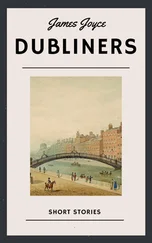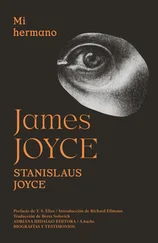James Joyce - Dubliners
Здесь есть возможность читать онлайн «James Joyce - Dubliners» весь текст электронной книги совершенно бесплатно (целиком полную версию без сокращений). В некоторых случаях можно слушать аудио, скачать через торрент в формате fb2 и присутствует краткое содержание. Год выпуска: 2001, Жанр: Классическая проза, на английском языке. Описание произведения, (предисловие) а так же отзывы посетителей доступны на портале библиотеки ЛибКат.
- Название:Dubliners
- Автор:
- Жанр:
- Год:2001
- ISBN:нет данных
- Рейтинг книги:4 / 5. Голосов: 1
-
Избранное:Добавить в избранное
- Отзывы:
-
Ваша оценка:
- 80
- 1
- 2
- 3
- 4
- 5
Dubliners: краткое содержание, описание и аннотация
Предлагаем к чтению аннотацию, описание, краткое содержание или предисловие (зависит от того, что написал сам автор книги «Dubliners»). Если вы не нашли необходимую информацию о книге — напишите в комментариях, мы постараемся отыскать её.
Dubliners — читать онлайн бесплатно полную книгу (весь текст) целиком
Ниже представлен текст книги, разбитый по страницам. Система сохранения места последней прочитанной страницы, позволяет с удобством читать онлайн бесплатно книгу «Dubliners», без необходимости каждый раз заново искать на чём Вы остановились. Поставьте закладку, и сможете в любой момент перейти на страницу, на которой закончили чтение.
Интервал:
Закладка:
"I'd like nothing better this minute," said Mr Browne stoutly, "than a rattling fine walk in the country or a fast drive with a good spanking goer between the shafts."
"We used to have a very good horse and trap at home," said Aunt Julia sadly.
"The never-to-be-forgotten Johnny," said Mary Jane, laughing.
Aunt Kate and Gabriel laughed too.
"Why, what was wonderful about Johnny?" asked Mr Browne.
"The late lamented Patrick Morkan, our grandfather, that is," explained Gabriel, "commonly known in his later years as the old gentleman, was a glue-boiler."
"O now, Gabriel," said Aunt Kate, laughing, "he had a starch mill."
"Well, glue or starch," said Gabriel, "the old gentleman had a horse by the name of Johnny. And Johnny used to work in the old gentleman's mill, walking round and round in order to drive the mill. That was all very well; but now comes the tragic part about Johnny. One fine day the old gentleman thought he'd like to drive out with the quality to a military review in the park."
"The Lord have mercy on his soul," said Aunt Kate compassionately.
"Amen," said Gabriel. "So the old gentleman, as I said, harnessed Johnny and put on his very best tall hat and his very best stock collar and drove out in grand style from his ancestral mansion somewhere near Back Lane, I think."
Everyone laughed, even Mrs Malins, at Gabriel's manner and Aunt Kate said:
"O now, Gabriel, he didn't live in Back Lane, really. Only the mill was there."
"Out from the mansion of his forefathers," continued Gabriel, "he drove with Johnny. And everything went on beautifully until Johnny came in sight of King Billy's statue: and whether he fell in love with the horse King Billy sits on or whether he thought he was back again in the mill, anyhow he began to walk round the statue."
Gabriel paced in a circle round the hall in his goloshes amid the laughter of the others.
"Round and round he went," said Gabriel, "and the old gentleman, who was a very pompous old gentleman, was highly indignant. 'Go on, sir! What do you mean, sir? Johnny! Johnny! Most extraordinary conduct! Can't understand the horse!'"
The peal of laughter which followed Gabriel's imitation of the incident was interrupted by a resounding knock at the hall door. Mary Jane ran to open it and let in Freddy Malins. Freddy Malins, with his hat well back on his head and his shoulders humped with cold, was puffing and steaming after his exertions.
"I could only get one cab," he said.
"O, we'll find another along the quay," said Gabriel.
"Yes," said Aunt Kate. "Better not keep Mrs Malins standing in the draught."
Mrs Malins was helped down the front steps by her son and Mr Browne and, after many manœuvres, hoisted into the cab. Freddy Malins clambered in after her and spent a long time settling her on the seat, Mr Browne helping him with advice. At last she was settled comfortably and Freddy Malins invited Mr Browne into the cab. There was a good deal of confused talk, and then Mr Browne got into the cab. The cabman settled his rug over his knees, and bent down for the address. The confusion grew greater and the cabman was directed differently by Freddy Malins and Mr Browne, each of whom had his head out through a window of the cab. The difficulty was to know where to drop Mr Browne along the route, and Aunt Kate, Aunt Julia and Mary Jane helped the discussion from the doorstep with cross-directions and contradictions and abundance of laughter. As for Freddy Malins he was speechless with laughter. He popped his head in and out of the window every moment to the great danger of his hat, and told his mother how the discussion was progressing, till at last Mr Browne shouted to the bewildered cabman above the din of everybody's laughter:
"Do you know Trinity College?"
"Yes, sir," said the cabman.
"Well, drive bang up against Trinity College gates," said Mr Browne, "and then we'll tell you where to go. You understand now?"
"Yes, sir," said the cabman.
"Make like a bird for Trinity College."
"Right, sir," said the cabman.
The horse was whipped up and the cab rattled off along the quay amid a chorus of laughter and adieus.
Gabriel had not gone to the door with the others. He was in a dark part of the hall gazing up the staircase. A woman was standing near the top of the first flight, in the shadow also. He could not see her face but he could see the terracotta and salmon-pink panels of her skirt which the shadow made appear black and white. It was his wife. She was leaning on the banisters, listening to something. Gabriel was surprised at her stillness and strained his ear to listen also. But he could hear little save the noise of laughter and dispute on the front steps, a few chords struck on the piano and a few notes of a man's voice singing.
He stood still in the gloom of the hall, trying to catch the air that the voice was singing and gazing up at his wife. There was grace and mystery in her attitude as if she were a symbol of something. He asked himself what is a woman standing on the stairs in the shadow, listening to distant music, a symbol of. If he were a painter he would paint her in that attitude. Her blue felt hat would show off the bronze of her hair against the darkness and the dark panels of her skirt would show off the light ones. Distant Music he would call the picture if he were a painter.
The hall-door was closed; and Aunt Kate, Aunt Julia and Mary Jane came down the hall, still laughing.
"Well, isn't Freddy terrible?" said Mary Jane. "He's really terrible."
Gabriel said nothing but pointed up the stairs towards where his wife was standing. Now that the hall-door was closed the voice and the piano could be heard more clearly. Gabriel held up his hand for them to be silent. The song seemed to be in the old Irish tonality and the singer seemed uncertain both of his words and of his voice. The voice, made plaintive by distance and by the singer's hoarseness, faintly illuminated the cadence of the air with words expressing grief:
O, the rain falls on my heavy locks
And the dew wets my skin,
My babe lies cold....
"O," exclaimed Mary Jane. "It's Bartell D'Arcy singing and he wouldn't sing all the night. O, I'll get him to sing a song before he goes."
"O do, Mary Jane," said Aunt Kate.
Mary Jane brushed past the others and ran to the staircase, but before she reached it the singing stopped and the piano was closed abruptly.
"O, what a pity!" she cried. "Is he coming down, Gretta?"
Gabriel heard his wife answer yes and saw her come down towards them. A few steps behind her were Mr Bartell D'Arcy and Miss O'Callaghan.
"O, Mr D'Arcy," cried Mary Jane, "it's downright mean of you to break off like that when we were all in raptures listening to you."
"I have been at him all the evening," said Miss O'Callaghan, "and Mrs Conroy too and he told us he had a dreadful cold and couldn't sing."
"O, Mr D'Arcy," said Aunt Kate, "now that was a great fib to tell."
"Can't you see that I'm as hoarse as a crow?" said Mr D'Arcy roughly.
He went into the pantry hastily and put on his overcoat. The others, taken aback by his rude speech, could find nothing to say. Aunt Kate wrinkled her brows and made signs to the others to drop the subject. Mr D'Arcy stood swathing his neck carefully and frowning.
"It's the weather," said Aunt Julia, after a pause.
"Yes, everybody has colds," said Aunt Kate readily, "everybody."
"They say," said Mary Jane, "we haven't had snow like it for thirty years; and I read this morning in the newspapers that the snow is general all over Ireland."
"I love the look of snow," said Aunt Julia sadly.
"So do I," said Miss O'Callaghan. "I think Christmas is never really Christmas unless we have the snow on the ground."
Читать дальшеИнтервал:
Закладка:
Похожие книги на «Dubliners»
Представляем Вашему вниманию похожие книги на «Dubliners» списком для выбора. Мы отобрали схожую по названию и смыслу литературу в надежде предоставить читателям больше вариантов отыскать новые, интересные, ещё непрочитанные произведения.
Обсуждение, отзывы о книге «Dubliners» и просто собственные мнения читателей. Оставьте ваши комментарии, напишите, что Вы думаете о произведении, его смысле или главных героях. Укажите что конкретно понравилось, а что нет, и почему Вы так считаете.



